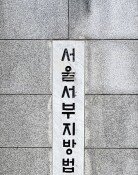[Editorial] Number of Presidential Committees Needs to Be Reduced Greatly
[Editorial] Number of Presidential Committees Needs to Be Reduced Greatly
Posted September. 15, 2004 22:00,
Since this current government took office, the number of presidential committees has increased threefold compared to under the previous government. The number of advisory committees, including one on administrative capital relocation, one on the northeast Asian cooperation initiative, and one on government innovation and decentralization, has increased to 18, and there are four administrative commissionsthe Civil Service Commission, the Regulatory Reform Committee, the Presidential Truth Commission on Suspicious Deaths, and the Korea Independent Commission against Corruption. They amount to a total of 22 presidential committees. Even without counting committees defined as independent by the constitution, such as the National Security Committee and the Democratic and Peaceful Unification Advisory Committee, this government deserves the title of Republic of Committees since it has the greatest number of committees in history.
It is true that since government officials are inevitably inclined to focus on current pending issues, these advisories, which can view issues one step apart, are helpful in deciding long term administrative affairs. Nonetheless, such a large number of committees cannot be considered normal. Moreover, this becomes even more serious when these advisory committees go beyond simple advice and directly influence decisions of major national policies and raise concerns that they make government agencies puppets.
So far, numerous government affairs including capital relocation and reorganization of government agencies have all been decided by these committees. This is not a right direction to head towards. It does not conform to the decentralized management of government affairs that has been promised by the president. In an effort to clarify the responsibilities on each issue, government agencies are grouped into six teams, and either the vice prime minister or the minister is put in charge of these teams. It doesnt make sense after all these reorganizations that major decisions are made in committees.
Another problem is that most of the members of these committees consist of people who have a matching code with the president, such as professors who advised the president during the presidential election and those who worked in the presidential transition committee. It is hard to expect to reflect opinions from various angles and therefore, it is more likely to end up with policies or roadmaps that are not realistic.
It is desirable to reduce the number of committees unless absolutely necessary. It has been heard that 100 major state affairs have now been decided, and this is a good time to consolidate unnecessary committees. It should be noticed that the longer these cabinet above cabinet with increased budgets and manpower exists, the more damage the processes of government decision making and their efficiency will suffer.







